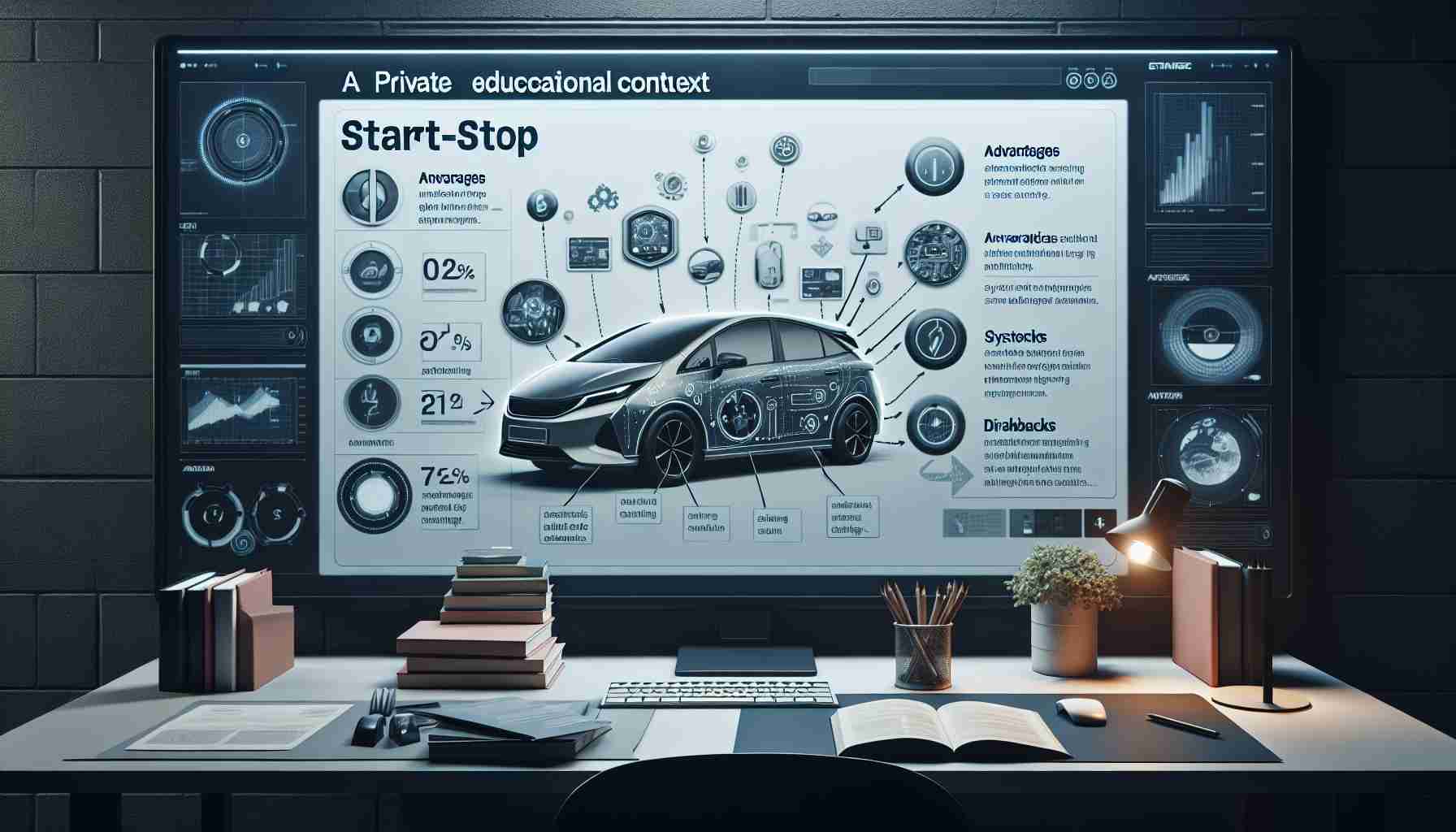When it comes to start-stop technology, opinions vary greatly. Some drivers see it as a blessing, while others find it infuriating, especially in heavy traffic. But what exactly is start-stop technology, and what are its implications for fuel economy and real-world driving?
Start-stop technology is a system that automatically shuts down the engine when the vehicle comes to a stop, such as at a red light or in traffic, and restarts it when the driver releases the brake pedal. While the engine is turned off, essential components like the air conditioning system, power steering, and brakes continue to run on battery power.
According to automakers and the engineering community, start-stop technology can improve fuel economy by 5 to 10 percent. However, skepticism remains regarding these claims. While there may be some gas savings when the engine is not idling, the actual reduction in emissions is also a matter of debate.
One of the concerns with start-stop technology is the level of comfort and convenience it provides. Smaller engines tend to have a more seamless experience with the system, while larger engines may cause noticeable vibrations and engine noise when turning on and off. Additionally, some drivers have reported reduced air conditioning performance when the engine stops, particularly in high temperatures.
Fortunately, most vehicles equipped with start-stop technology also include a switch to disengage the system. This allows drivers who are not fond of the technology to turn it off. However, it’s worth mentioning that the system needs to be disengaged every time the vehicle is started.
While start-stop technology has its advantages—including potential fuel savings—it’s crucial for car shoppers to be aware of its presence in their desired vehicles and to test-drive the vehicle to determine how the system performs under different conditions. Asking questions about the start-stop system during the test drive can also help avoid surprises after the purchase.
In conclusion, start-stop technology has the potential to offer benefits in terms of fuel economy, but it also presents drawbacks in terms of comfort and convenience. Ultimately, it’s a matter of personal preference, and drivers should be informed and have the option to control whether the system is active or not in their vehicles.
FAQ – Start-Stop Technology
Q: What is start-stop technology?
A: Start-stop technology is a system in vehicles that automatically shuts down the engine when the vehicle comes to a stop, such as at a red light or in traffic, and restarts it when the driver releases the brake pedal.
Q: How does start-stop technology affect fuel economy?
A: According to automakers and the engineering community, start-stop technology can improve fuel economy by 5 to 10 percent. However, there is skepticism regarding these claims.
Q: What are the implications for emissions reduction?
A: The reduction in emissions with start-stop technology is a matter of debate. While there may be some gas savings when the engine is not idling, the actual reduction in emissions is uncertain.
Q: Does start-stop technology affect comfort and convenience?
A: Start-stop technology may affect comfort and convenience. Smaller engines tend to have a more seamless experience, while larger engines may cause noticeable vibrations and engine noise. Some drivers have also reported reduced air conditioning performance when the engine stops, particularly in high temperatures.
Q: Can the start-stop system be turned off?
A: Most vehicles equipped with start-stop technology include a switch to disengage the system, allowing drivers who are not fond of the technology to turn it off. However, the system needs to be disengaged every time the vehicle is started.
Q: What should car shoppers consider regarding start-stop technology?
A: Car shoppers should be aware of the presence of start-stop technology in their desired vehicles and test-drive the vehicle to understand how the system performs under different conditions. Asking questions about the start-stop system during the test drive can help avoid surprises after the purchase.
Q: What is the overall verdict on start-stop technology?
A: Start-stop technology has the potential to offer benefits in terms of fuel economy, but it also presents drawbacks in terms of comfort and convenience. Ultimately, it is a matter of personal preference, and drivers should be informed and have the option to control whether the system is active or not in their vehicles.
Definitions:
– Start-stop technology: A system that shuts down the engine when the vehicle comes to a stop and restarts it when the driver releases the brake pedal.
– Fuel economy: Refers to the efficiency with which a vehicle uses fuel, often measured in miles per gallon (mpg).
– Emissions: Refers to the gases and pollutants released into the atmosphere by a vehicle’s engine during operation.
Related links:
– cars.com – Start-Stop Systems: Save Gas or Just Annoy You?
– HowStuffWorks – Does start-stop technology really save gas?
